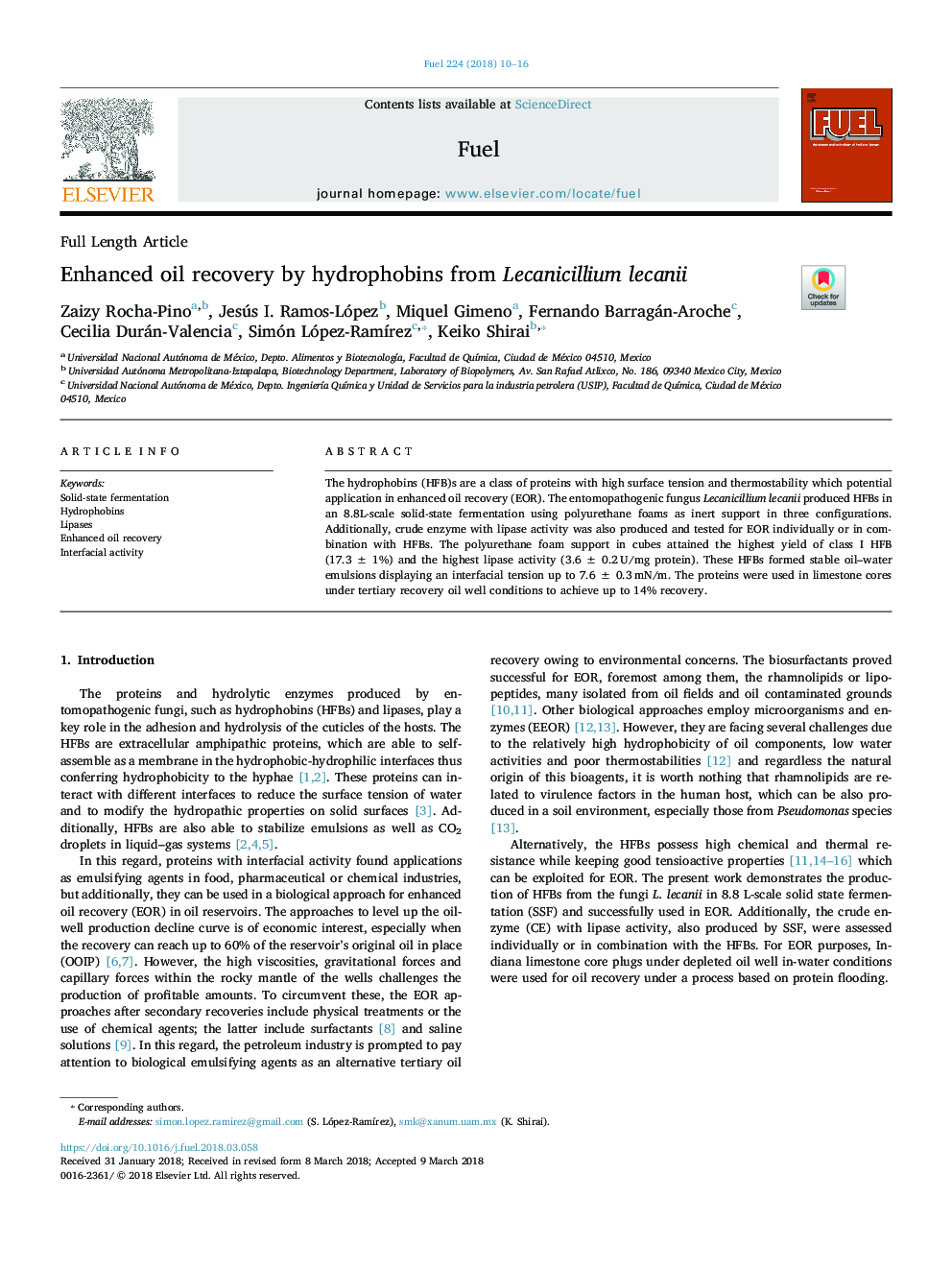| Article ID | Journal | Published Year | Pages | File Type |
|---|---|---|---|---|
| 6631093 | Fuel | 2018 | 7 Pages |
Abstract
The hydrophobins (HFB)s are a class of proteins with high surface tension and thermostability which potential application in enhanced oil recovery (EOR). The entomopathogenic fungus Lecanicillium lecanii produced HFBs in an 8.8L-scale solid-state fermentation using polyurethane foams as inert support in three configurations. Additionally, crude enzyme with lipase activity was also produced and tested for EOR individually or in combination with HFBs. The polyurethane foam support in cubes attained the highest yield of class I HFB (17.3â¯Â±â¯1%) and the highest lipase activity (3.6â¯Â±â¯0.2â¯U/mg protein). These HFBs formed stable oil-water emulsions displaying an interfacial tension up to 7.6â¯Â±â¯0.3â¯mN/m. The proteins were used in limestone cores under tertiary recovery oil well conditions to achieve up to 14% recovery.
Related Topics
Physical Sciences and Engineering
Chemical Engineering
Chemical Engineering (General)
Authors
Zaizy Rocha-Pino, Jesús I. Ramos-López, Miquel Gimeno, Fernando Barragán-Aroche, Cecilia Durán-Valencia, Simón López-RamÃrez, Keiko Shirai,
